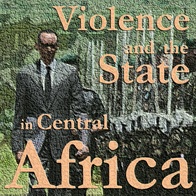Elections and the Politics of Fear in Uganda: The End of Post-Liberation Politics?
Zbigniew Brzezinski noted that the politics of fear is an efficient means of control because it “obscures reason and intensifies emotions.” After more than 34 years in power, President Museveni of Uganda—who toppled Milton Obote’s regime in 1986 after years in the bush with the National Resistance Movement (NRM)—understood the politics of fear better than anyone else. If one still had doubts, the death of around 40 people in Kampala at a political rally organized by Bobi Wine, Museveni’s main opponent, in November came to confirm one thing: it is election season in Uganda. On 14 January 2021, Ugandans will go to the polls. Museveni will most likely win re-election, after having scrapped the presidential term and age limits in 2005 and 2017 respectively. However, this piece argues that the intense politics of fear used by his regime can be interpreted as the possible end of post-liberation politics in Uganda. Post-liberation …
Internet Suppression and Violence in Uganda: Implications for the 2021 Elections
In 2016, Uganda’s Presidential election was met with a surge in violence. More than 20 people reportedly died and even more were threatened and beaten in the lead-up to the election. Current Ugandan President Yoweri Museveni, who has ruled the country since 1986, captured another term in office through a strategy that relied on intimidation tactics. Voters throughout the country were told that their regions would not receive aid support if they did not vote for Museveni, leading EU and U.S. election monitors to deem that there was “an atmosphere of intimidation” that was “deeply inconsistent with international standards.” In the lead-up to next year’s election, there are again fears of an illegitimate democratic process. Namely, increasing internet suppression may mar the outcome of the …

And so it continues…: Rwandan refugees and the latest bilateral politicking in the Great Lakes
The year 2002 marked the initiation of discussions concerning the suitability of invoking Article 1C(5) of the 1951 Convention Relating to the Status of Refugees to deal with the protracted Rwandan refugee caseload. This Article permits a declaration by countries and UNHCR that ‘the circumstances in connexion with which he [the refugee] has been recognised as a refugee have ceased to exist’, and therefore ‘he can no longer…continue to refuse to avail himself of the protection of the country of his nationality.’ In short, the ‘ceased circumstances’ Cessation Clause constitutes an international validation of positive change in post-conflict governance and the meaningful re-establishment of the citizen-state bond, as well as providing a legal normative framework for the repatriation of former refugees.
It is easy to see why the GoR so earnestly pushed for the invocation of the Cessation Clause throughout the Noughties. Internal and external legitimacy was waning under the weight of mounting evidence that domestic politics was partisan and exclusionary at best, authoritarian and murderous at worst. The regime wanted to repatriate potential opponents back to within the state’s jurisdiction. Achieving international consensus over the suitability of refugees returning to Rwanda was thus a potential way to refute accusations concerning human rights abuses within the country, and to exercise more control over possible critics. Controversially, the High Commissioner for Refugees announced support for the cancellation of status for all Rwandan refugees by the end of 2011. After seven years of lobbying and contestation, this therefore constituted a major victory for the RPF.









